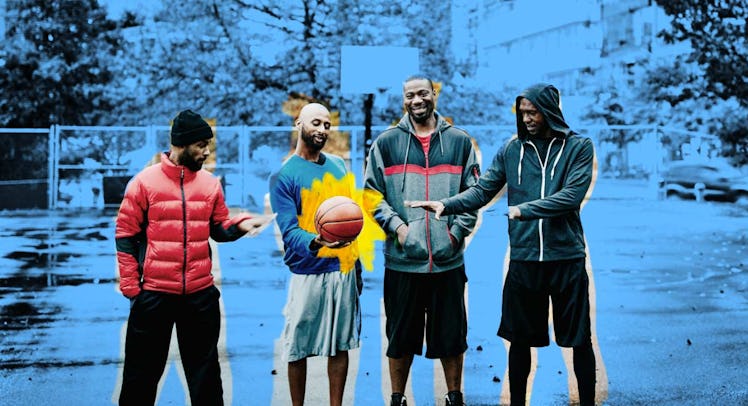Research Suggests Men Should Skip the Gym Workouts and Play Sports
Playing sports predicted men's physical activity into their 80s more than any other form of recreation.

Men who play sports throughout their lives are almost five times more likely to be physically active into their 70s and 80s than men who just hit the gym, according to researchers who eschewed basketball for combing through some 20 years of data. The findings, published in British Medical Journal: Open, suggest that being competitive compounds the health benefits associated with exercise in general.
“Early engagement in sport and structured exercise may be vital for developing the necessary motor skills needed to establish a lifelong habit for physical activity,” study coauthor Daniel Aggio, from University College London, said in a statement. That said, it normally requires some organization to continue playing after your managing a career and a kid. Now research is proving that rec league soccer is a good use of time. Why? Because it keeps men active for longer than workouts and active men tend to stay active, decreasing their risk of cardiovascular disease and increasing longevity. While past studies on younger subjects indicate that sports participation is a predictor of physical activity later in life, there hasn’t been research that has done the same for adults transitioning from middle age to old age.
This prompted Aggio and his team to analyze data obtained from the British Regional Heart Study—a longitudinal study study that followed 7,735 men between the ages of 40 and 59-years-old for up to 20 years. Men, who we initially recruited through their primary care providers, were followed up with at 12, 16, and 20 years, at which point only 3,413 men were alive and participating in the research, rounding out the final sample size. During the follow up, participants self-reported whether they were inactive or active, and if they had high or low participation in a sport, walking, or non-sport related recreational activities. Expectedly men generally decreased their activity level overall with age, as well as their participation in non-sport related recreational activities. Results similarly revealed that participating in sports in middle age was the was a stronger predictor of physical activity in old age than any other domain—and the sooner they started playing, the better off they were. If they played sports for 25 years or more are nearly five times as likely to be physically active as they approached their golden years.
Researchers suspect that this effect may have been due to the fact that men simply enjoyed sports more, and continued playing them for as long as they could as a result. Interestingly, the findings showed that walking increased with age, perhaps because men had aged out of running. As this is the first study looking at adults, more research needs to be done to confirm these findings. The important takeaway is that as much as fathers may be focused on getting their kids involved in sports, they may not want to forget about their own pick up games. Likewise, getting a late start is better than no start.
“Taking up sport, even in midlife or early old age, may increase the chances of being active in old age,” Aggio told TIME.
Aggio has not yet specified if golf counts.
This article was originally published on